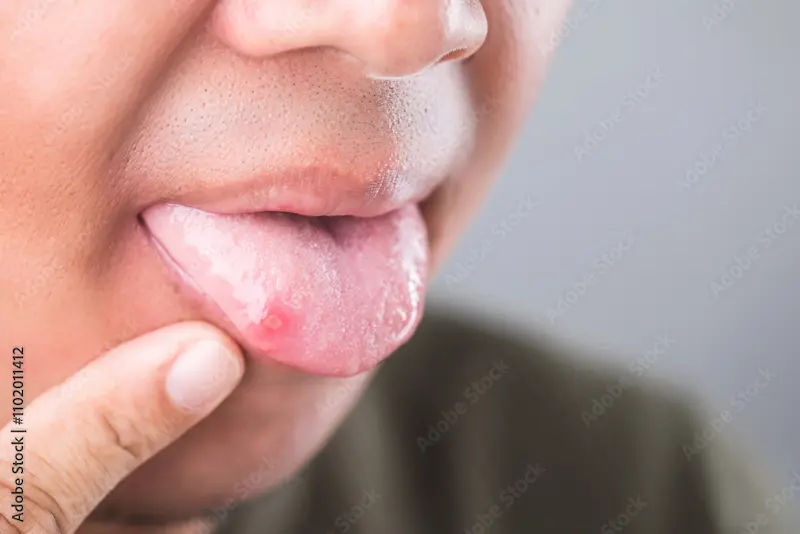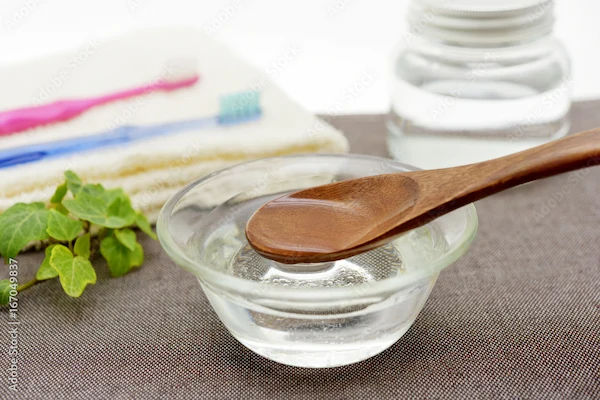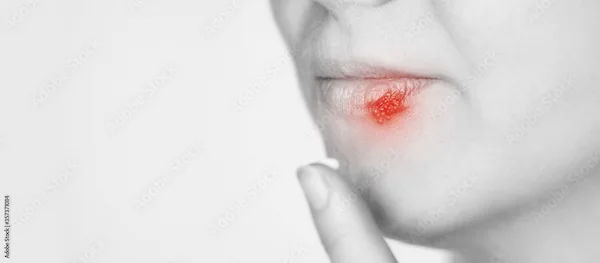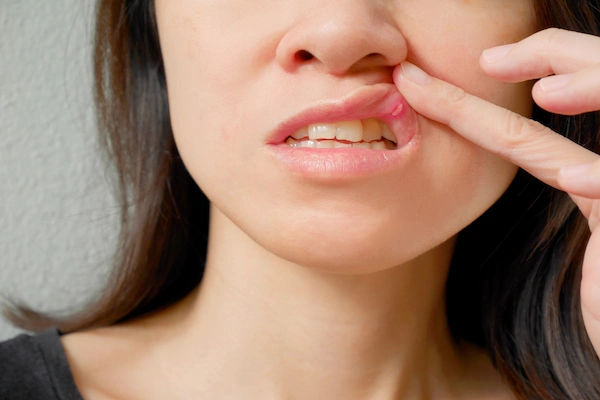Foods that Cause Mouth Ulcers: Understanding Triggers and Managing Discomfort
Discover the foods that cause mouth ulcers and learn how to manage discomfort effectively. Explore triggers like acidic, spicy, and sugary foods, along with soothing dietary alternatives to promote healing.

Written by Dr Shreya Sarkar
Last updated on 3rd Jul, 2025
Mouth ulcers, also known as canker sores, are small, painful lesions that form inside the mouth, typically on the cheeks, gums, tongue, or roof of the mouth. These ulcers can make eating, drinking, and even speaking uncomfortable. While mouth ulcers can arise from a variety of causes, one of the most common factors is diet. Certain foods can irritate the sensitive tissue in the mouth, trigger inflammation, and worsen the discomfort associated with these ulcers.
In this article, we will delve into the foods that are most likely to cause mouth ulcers, help you understand why these foods are problematic, and provide suggestions for alternatives that can promote healing. By being aware of your food triggers, you can better manage and prevent the recurrence of mouth ulcers, ensuring a smoother path toward healing and comfort.
What Causes Mouth Ulcers?
Before exploring the foods that can trigger mouth ulcers, it is important to understand what causes them. Mouth ulcers can be caused by a variety of factors, including:
Injury or Trauma: Biting the inside of the cheek, brushing the teeth too hard, or using ill-fitting dentures can lead to the formation of mouth ulcers.
Stress: Emotional stress and anxiety can be significant contributors to mouth ulcer outbreaks.
Hormonal Changes: Hormonal fluctuations, especially during menstruation or pregnancy, can increase the likelihood of developing mouth ulcers.
Nutritional Deficiencies: A lack of vitamins and minerals, particularly vitamin B12, iron, and folic acid, can make a person more susceptible to mouth ulcers.
Underlying Health Conditions: Certain medical conditions, such as celiac disease, Crohn’s disease, or autoimmune disorders, may increase the risk of developing mouth ulcers.
Foods That Cause Mouth Ulcers
Certain foods can irritate the sensitive tissues in the mouth and trigger or exacerbate mouth ulcers. Understanding these food triggers can help you make informed dietary choices to prevent and manage mouth ulcers.
1. Acidic Foods
Acidic foods are among the most common triggers for mouth ulcers. These foods can cause irritation and prolong the healing process by exacerbating inflammation in the mouth. The acidity of these foods can directly affect the sensitive mucous membranes inside the mouth, worsening the pain associated with mouth ulcers.
Citrus Fruits: Oranges, lemons, limes, grapefruits, and other citrus fruits contain high levels of citric acid, which can irritate existing ulcers or cause new ones to form.
Tomatoes: Whether in the form of fresh tomatoes, tomato sauce, or tomato-based products, tomatoes are highly acidic and can be a source of irritation for those prone to mouth ulcers.
Vinegar: Vinegar is a common ingredient in many foods and salad dressings. Its acidity can cause a stinging sensation, particularly if there are already ulcers present.
Alternative Options: Opt for non-acidic fruits such as bananas, melons, and apples (without the skin) to reduce irritation. If you need to use tomato sauce, try to use it in moderation and pair it with soothing foods like rice or pasta.
2. Spicy Foods
Spicy foods can cause a burning sensation in the mouth, especially when ulcers are present. Capsaicin, the compound responsible for the heat in chilli peppers and spicy dishes, can aggravate existing mouth ulcers by irritating the tissues in the mouth.\
Hot Peppers: Whether fresh, dried, or in powder form, hot peppers can trigger a painful flare-up of mouth ulcers.
Spicy Curries and Sauces: These foods often contain chilli powder, curry spices, or hot sauce, all of which can irritate the ulcerated tissue in the mouth.
Alternative Options: Opt for mild or non-spicy foods, such as bland dishes with herbs like basil, thyme, and oregano, which offer flavour without irritation. When preparing curries or sauces, use milder spices such as cinnamon or turmeric to add flavour without causing discomfort.
3. Crunchy and Hard Foods
Crunchy and hard foods can further aggravate mouth ulcers by causing mechanical trauma to the ulcerated area. When chewing these foods, it’s easy to accidentally bite the inside of the cheek or scrape the ulcer, which may cause it to bleed or grow.
Nuts: While nuts are healthy and nutritious, their crunchy texture can irritate the sensitive tissue in the mouth and exacerbate the pain caused by mouth ulcers.
Crackers and Chips: These foods can also cause irritation due to their rough texture, which may scratch the inside of the mouth or further inflame the ulcer.
Crispy Foods: Foods that are fried or have a crispy texture, such as fried chicken or French fries, can also lead to discomfort when they come into contact with mouth ulcers.
Alternative Options: Opt for softer foods, such as yogurt, mashed potatoes, cooked vegetables, and soups. If you want a snack, go for softer options like oatmeal or scrambled eggs.
4. Dairy Products
While dairy products are not inherently problematic for everyone with mouth ulcers, some people find that milk and other dairy items can aggravate the pain, especially if they already have an underlying sensitivity. Dairy can sometimes increase mucus production, which may make the ulcer feel more irritated and inflamed.
Milk: Full-fat milk and cream can sometimes lead to a feeling of discomfort, particularly in those who are lactose intolerant or sensitive to dairy.
Cheese: Hard cheeses, in particular, may contribute to the irritation due to their strong flavours and texture.
Yoghurt: While yoghurt contains probiotics that may be beneficial for gut health, some people may find that the dairy content can trigger mouth ulcer pain.
Alternative Options: For those who experience discomfort from dairy, consider trying dairy-free alternatives such as almond milk, coconut yoghurt, or lactose-free options.
5. Sweets and Sugary Foods
Sugary foods can irritate mouth ulcers in two main ways. First, sugar can increase inflammation and pain by contributing to bacterial growth in the mouth. Second, the high sugar content in many processed foods can cause spikes in blood sugar, which may impact the immune system’s ability to heal the ulcer effectively.
Candy and Chocolate: These sweets are often sticky and can cling to the inside of the mouth, increasing irritation around the ulcer.
Sugary Snacks and Pastries: Cakes, cookies, doughnuts, and other sugary baked goods are best avoided, as the high sugar content can worsen the inflammation in the mouth.Alternative Options: Opt for natural sweeteners like honey (which also has healing properties) or fruits such as apples, pears, or grapes to satisfy your sweet cravings.
6. Alcoholic Beverages
Alcohol is another common trigger for mouth ulcers. It can cause a stinging or burning sensation in the mouth, especially when ulcers are present. Alcohol also has a drying effect on the mouth, which can exacerbate irritation and prolong the healing process. Furthermore, excessive alcohol consumption can weaken the immune system, making it harder for the body to fight off infections that might contribute to mouth ulcer formation.
Wine, Beer, and Spirits: These drinks can directly irritate the ulcer and increase pain.
Cocktails: Alcoholic mixed drinks often contain acidic ingredients (such as citrus or soda), which can further irritate mouth ulcers.
Alternative Options: For those who enjoy drinking, consider limiting alcohol intake or opting for non-alcoholic beverages like herbal teas or sparkling water with a splash of fruit juice.
7. Caffeinated Beverages
Like alcohol, caffeinated beverages can contribute to mouth ulcer pain and inflammation. Coffee, in particular, has a high level of acidity and can be particularly problematic for those who already have ulcers. The acidity, combined with the dehydrating effects of caffeine, can worsen discomfort and make the ulcer more persistent.
Coffee and Tea: Both caffeinated and decaffeinated coffee and tea can irritate existing ulcers, especially when consumed in large quantities.
Energy Drinks: These drinks often contain high levels of caffeine, sugar, and acidity, all of which can exacerbate mouth ulcer symptoms.
Alternative Options: Consider switching to herbal teas such as chamomile or ginger, which are soothing and non-irritating.
How to Manage Mouth Ulcers Through Diet
While avoiding certain trigger foods is an important step in managing mouth ulcers, there are also dietary strategies that can support healing and prevent further outbreaks:
Increase Vitamin Intake: Deficiencies in vitamin B12, folic acid, and iron can increase the risk of mouth ulcers. Incorporate foods rich in these vitamins, such as leafy greens, lean meats, eggs, and fortified cereals.
Stay Hydrated: Drinking plenty of water helps keep your mouth moist and promotes healing. Staying hydrated also helps reduce inflammation.
Incorporate Soothing Foods: Soft, bland foods like mashed potatoes, oatmeal, and smoothies are easy to eat and help minimise irritation.
Avoid Hot, Cold, or Spicy Foods: These can irritate the ulcer and make it harder for the tissue to heal.
Conclusion
Mouth ulcers can be a source of significant discomfort, affecting daily activities such as eating, drinking, and speaking. By identifying and avoiding foods that trigger or exacerbate these ulcers, individuals can make informed dietary choices to manage and reduce their frequency. Common culprits include acidic, spicy, crunchy, and sugary foods while opting for soft, bland, and soothing alternatives can promote healing. In addition to dietary adjustments, maintaining good oral hygiene, staying hydrated, managing stress, and incorporating a balanced diet rich in vitamins and minerals are essential strategies for managing mouth ulcers. If frequent or severe mouth ulcers persist despite these changes, consulting with a healthcare provider or dietitian is recommended for further evaluation and guidance.
Consult Top Gastroenterologists
Consult Top Gastroenterologists

Dr. Sunil Kaul
General Surgeon
30 Years • MBBS, MS, FICS, FIMSA, FMAS
Delhi
Apollo Hospitals Indraprastha, Delhi
(25+ Patients)

Dr. Amit Pandita
Gastroenterology/gi Medicine Specialist
10 Years • MBBS. MD (INTERNAL MEDICINE) DrNB (GASTROENTEROLOGY AND HEPATOLOGY)
Delhi
Apollo Hospitals Indraprastha, Delhi

Dr Piyush Vishwakarma
Gastroenterology/gi Medicine Specialist
11 Years • MBBS, MD, DrNB,
Delhi
Apollo Hospitals Indraprastha, Delhi

Dr. Ankit Vijay Agarwal
Gastroenterology/gi Medicine Specialist
14 Years • MBBS(Osmania), DNB(Internal Medicine ), DM ( Osmania) Consultant Gastroenterologist, Hepatologist and Advanced Therapeutic Endoscopist
Hyderabad
Apollo Hospitals Jubilee Hills, Hyderabad

Dr Abhishek Tiwari
Minimal Access/Surgical Gastroenterology
15 Years • MBBS, MS, Diabetic Foot Course (Pisa, Italy)
Delhi
Apollo Hospitals Indraprastha, Delhi




